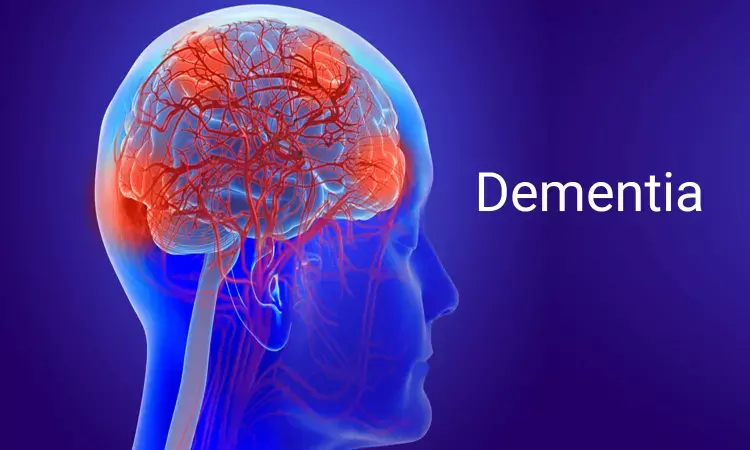- Home
- Medical news & Guidelines
- Anesthesiology
- Cardiology and CTVS
- Critical Care
- Dentistry
- Dermatology
- Diabetes and Endocrinology
- ENT
- Gastroenterology
- Medicine
- Nephrology
- Neurology
- Obstretics-Gynaecology
- Oncology
- Ophthalmology
- Orthopaedics
- Pediatrics-Neonatology
- Psychiatry
- Pulmonology
- Radiology
- Surgery
- Urology
- Laboratory Medicine
- Diet
- Nursing
- Paramedical
- Physiotherapy
- Health news
- Fact Check
- Bone Health Fact Check
- Brain Health Fact Check
- Cancer Related Fact Check
- Child Care Fact Check
- Dental and oral health fact check
- Diabetes and metabolic health fact check
- Diet and Nutrition Fact Check
- Eye and ENT Care Fact Check
- Fitness fact check
- Gut health fact check
- Heart health fact check
- Kidney health fact check
- Medical education fact check
- Men's health fact check
- Respiratory fact check
- Skin and hair care fact check
- Vaccine and Immunization fact check
- Women's health fact check
- AYUSH
- State News
- Andaman and Nicobar Islands
- Andhra Pradesh
- Arunachal Pradesh
- Assam
- Bihar
- Chandigarh
- Chattisgarh
- Dadra and Nagar Haveli
- Daman and Diu
- Delhi
- Goa
- Gujarat
- Haryana
- Himachal Pradesh
- Jammu & Kashmir
- Jharkhand
- Karnataka
- Kerala
- Ladakh
- Lakshadweep
- Madhya Pradesh
- Maharashtra
- Manipur
- Meghalaya
- Mizoram
- Nagaland
- Odisha
- Puducherry
- Punjab
- Rajasthan
- Sikkim
- Tamil Nadu
- Telangana
- Tripura
- Uttar Pradesh
- Uttrakhand
- West Bengal
- Medical Education
- Industry
Drug for common liver condition may be an effective treatment for dementia

Researchers at University of York in collaboration with the University of Sheffield have discovered that Ursodeoxycholic Acid, a drug used to treat cirrhosis of the liver may be an effective treatment for a form of Dementia and motorneuron disease.
Ursodeoxycholic acid (UCDA) is increasingly used for the treatment of cholestatic liver diseases and bile stones
The researchers used brain cells from fruit flies and rats to model the neurodegeneration process which occurs in patients with Frontotemporal Dementia (FTD).
The researchers identified new proteins involved in protecting neurons and discovered that Ursodeoxycholic Acid - an already approved drug, with very low toxicity - increases these proteins and protects neurons from death.
The authors of the study will now embark on further research to discover exactly how the drug works to protect neurons and whether more targeted drugs to treat FTD and a range of other neurodegenerative conditions could be developed.
FTD impacts the frontal and temporal lobes of the brain. Unlike other forms of dementia which primarily affect people over 65, FTD tends to start at a younger age with most cases diagnosed in people aged 45-65.
Senior author of the study, Dr Sean Sweeney, from the Department of Biology at the University of York, said: "We are on the cusp of being able to 'repurpose' a drug used for a liver complaint, that has very little toxicity in humans".
"The mechanism of action for this drug is currently unknown and the work we will now do to increase our understanding of how it works may help us lengthen and improve the lives of patients with FTD and potentially other neurodegenerative conditions too."
Up to 50% of cases of FTD have a genetic history of the disease in the family and previous research has identified nine genes that may have a role in its development.
Lead authors of the study, Dr. Ryan West and Dr. Chris Ugbode, used one of these genes to develop their unique genetic models of the disease in fruit flies and rat neurons. In these models, they found Ursodeoxycholic Acid keeps neurons in better health, but the drug is not a potential cure for the disease.
Dr West from the University of Sheffield, said: "In our lab models the drug was effective for treating Frontotemporal Dementia and motorneuron disease, but it does not rectify the underlying deficits, suggesting that the drug is neuroprotective but not a cure."
Fiona Carragher, Director of Research and Influencing at Alzheimer's Society added: "Currently, there's no way to slow down or cure frontotemporal dementia, one of the most common forms of dementia in people under 65, so we're excited to see an existing drug stopping brain cells from dying. While this is in the early stages, it's a valuable first step on the road to finding a way to improve the lives of people with FTD and help them live longer. We need help to continue funding studies like this, so we're asking the Government to honour their commitment to double dementia research funds - while finding new drugs from scratch costs billions and takes decades, we must make every penny count by grasping opportunities to repurpose drugs already approved for other conditions."
Hina Zahid Joined Medical Dialogue in 2017 with a passion to work as a Reporter. She coordinates with various national and international journals and association and covers all the stories related to Medical guidelines, Medical Journals, rare medical surgeries as well as all the updates in the medical field. Email: editorial@medicaldialogues.in. Contact no. 011-43720751
Dr Kamal Kant Kohli-MBBS, DTCD- a chest specialist with more than 30 years of practice and a flair for writing clinical articles, Dr Kamal Kant Kohli joined Medical Dialogues as a Chief Editor of Medical News. Besides writing articles, as an editor, he proofreads and verifies all the medical content published on Medical Dialogues including those coming from journals, studies,medical conferences,guidelines etc. Email: drkohli@medicaldialogues.in. Contact no. 011-43720751


